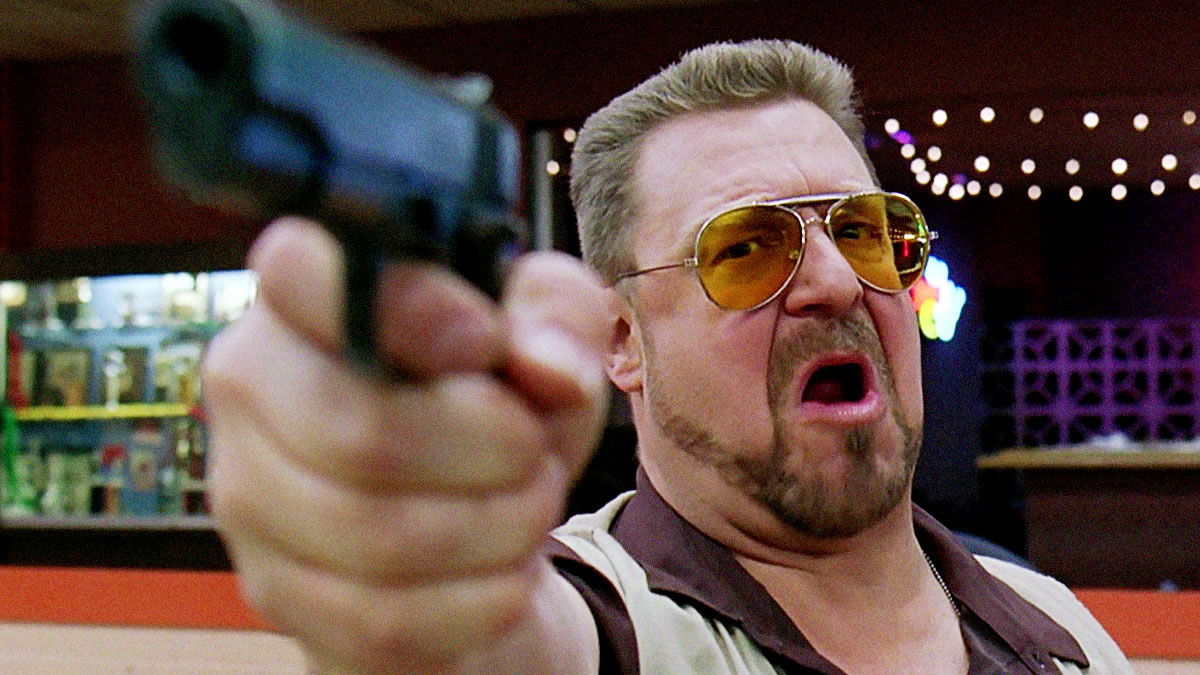
What’s in a swear word? Why do we get such a thrill from using and hearing them? Is it the forbidden nature of the words? Or the beautiful way in which they roll off the tongue and add a little spice to a sentence? Whatever the reason, a large majority of us love them and cinema reflects this.
Many claim that the first film to use the word “fuck” was in a 1933 animated film called Bosko’s Picture Show; although this fact has been disputed. Swearing in films was banned in 1934 after the instatement of the Hayes Code. Once it was lifted in 1968, and a new ratings system was put in place, cinema embraced profanity with open arms and moist lips. The first Hollywood film to use the word “fuck” post Hayes Code was M.A.S.H. Director Robert Altman claims it was a case of improvisation by the actor but it would act as the beginning of cinema’s obsession with the word.
Now-a-days, swearing is so common in film that often a swear word only needs to be hinted at or begun to be formed for the audience to understand what word is being communicated. For filmmakers seeking a wider audience, and therefore avoiding an R-rating, replacements, suddenly cutting away or mixing in other sounds are used to disguise the use of swear words. On the other end of this, it is difficult to find an R-rated film that doesn’t revel in profanity.
Arguably the most popular of all swear words, the one we all use more than any other, is the f-word and its many variants. Since M.A.S.H, many films have used the word for character development, authenticity or just to make the dialogue pack more of a punch. For example, one of the most famous uses of the words comes from a film that doesn’t use it much: Planes, Trains and Automobiles.
As the film progresses Steve Martin’s Neal becomes increasingly frustrated by the incompetence around him and the unbelievable misfortune he suffers through. He finally breaks when confronting a chirpy woman working for a car rental service and unleashes a barrage of fucks in her direction. The reason the word has such an impact here is because until then the word hadn’t been used. Its sudden and frequent use hits home what the character is feeling and elevates the comedic effect of the scene.
Swearnet: The Movie currently contains the most uses of the word “fuck” with it being used a whopping 857 times. With a runtime of only 93 minutes that means the word was said 9.21 times per minute. That a lot of fucks.
Below we have listed what we think are the best movies with a ton of f-words in them.
10. Alpha Dog
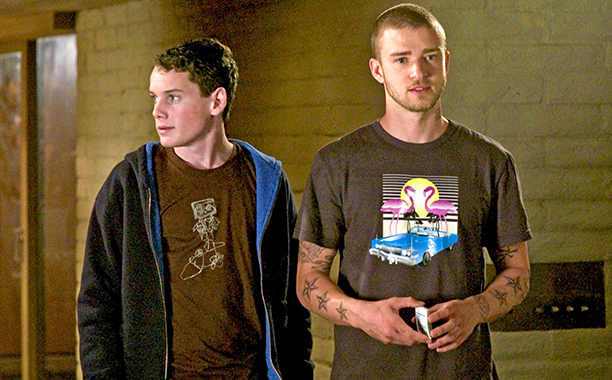
Alpha Dog is the harrowing true-story account of the kidnapping and eventual murder of Nicholas Markowitz. Directed by Nick “son of John” Cassavetes, the film depicts the events leading up to, during and after the kidnapping of Markowitz, who is renamed Zack Mazursky in the film and played by the late Anton Yelchin.
The film goes into detail on the lives of the gang members who committed the kidnapping and murder, and their interactions with Mazursky, with many of them growing to like him. It is notable for Yelchin’s (who was 16 years old at the time of the release) performance, which propelled him to stardom before his tragic death last year. The film is also notable for Justin Timberlake’s break out performance as Frankie, one of the gang members who befriends Mazursky and tries on a few occasions to convince Mazursky to escape.
The film’s authentic approach to capturing the real people involved means that it has to consider the way the gang members spoke. This of course leads to the film using many profanities and the f-word in particular. The word appears 367 times in the films 118-minute runtime. That makes an average of 3.11 times per minute.
9. South Park: Bigger, Longer and Uncut
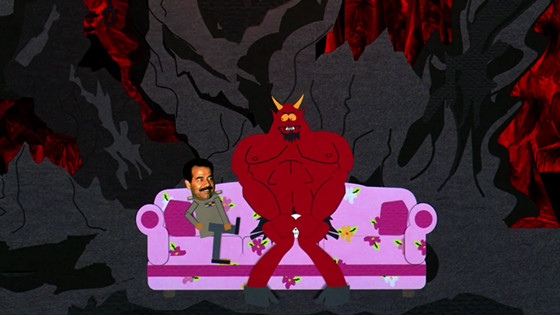
Holding the record for the most uses of swear words in an animated film until the release of Sausage Party last year, South Park: Bigger, Longer and Uncut is one of the most popular R-rated films in history and has garnered a massive cult following since its release. The film even notoriously earned an Oscar nomination for the song “Blame Canada”.
Taking note from the show, the film revels in its crude language. A statement on censorship and the expectations of animation, the film breaks barriers by taking any opportunity to turn to swearing, offensive gesture and acts of violence. Again, before the release of Sausage Party it stood as the highest grossing R-rated animated film of all time.
The film carries 146 uses of the f-word over an 81-minute runtime. This means the f-word appears an average of 1.8 times per minute. The word even features 31 times in the song “Uncle Fucka” alone. Not only this but the film features an impressive 253 other swear words making it quite the swear-fest indeed.
8. Menace II Society
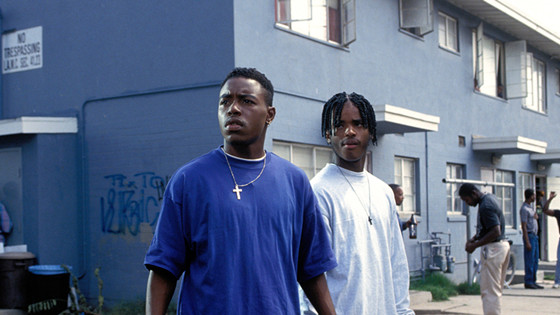
Menace II Society is a heart-breaking account of life in a crime-ridden district in LA. The film follows Caine (Tyrin Taylor) as he struggles to stay out of a criminal lifestyle that has plagued his friends and family. The film is explicit in its depiction of the violence and crime that Caine is subjected to and, in some cases, an assailant of. There is a clear goal here to be true to life in the depiction of the kinds of characters that live in Caine’s neighbourhood and the events that shape them. It is because of this that the film has such a powerful impact.
The film deals with some very troubling scenes such as sexual abuse, racism, police corruption, drug addiction and murder. What makes the depiction of these themes so hard hitting is how senseless they all are.
Early on in the film, Caine and his friend O-Dog (Lorenz Tate) are in a grocery store, they are looked upon differently because of the colour of their skin and how they dress and because of this they are rushed and insulted by the shopkeepers. Whilst this is senseless and unwarranted in itself, O-Dog’s reaction – murdering the shopkeeper and his wife – is even more senseless and sets the tone for the rest of the film.
Of course it would be bizarre if the language in the film were anything but crude. The film features many swear words and derogatory slurs, with the f-word appearing 305 times in 98 minutes. That means the word appears 3.11 times per minute.
7. End of Watch
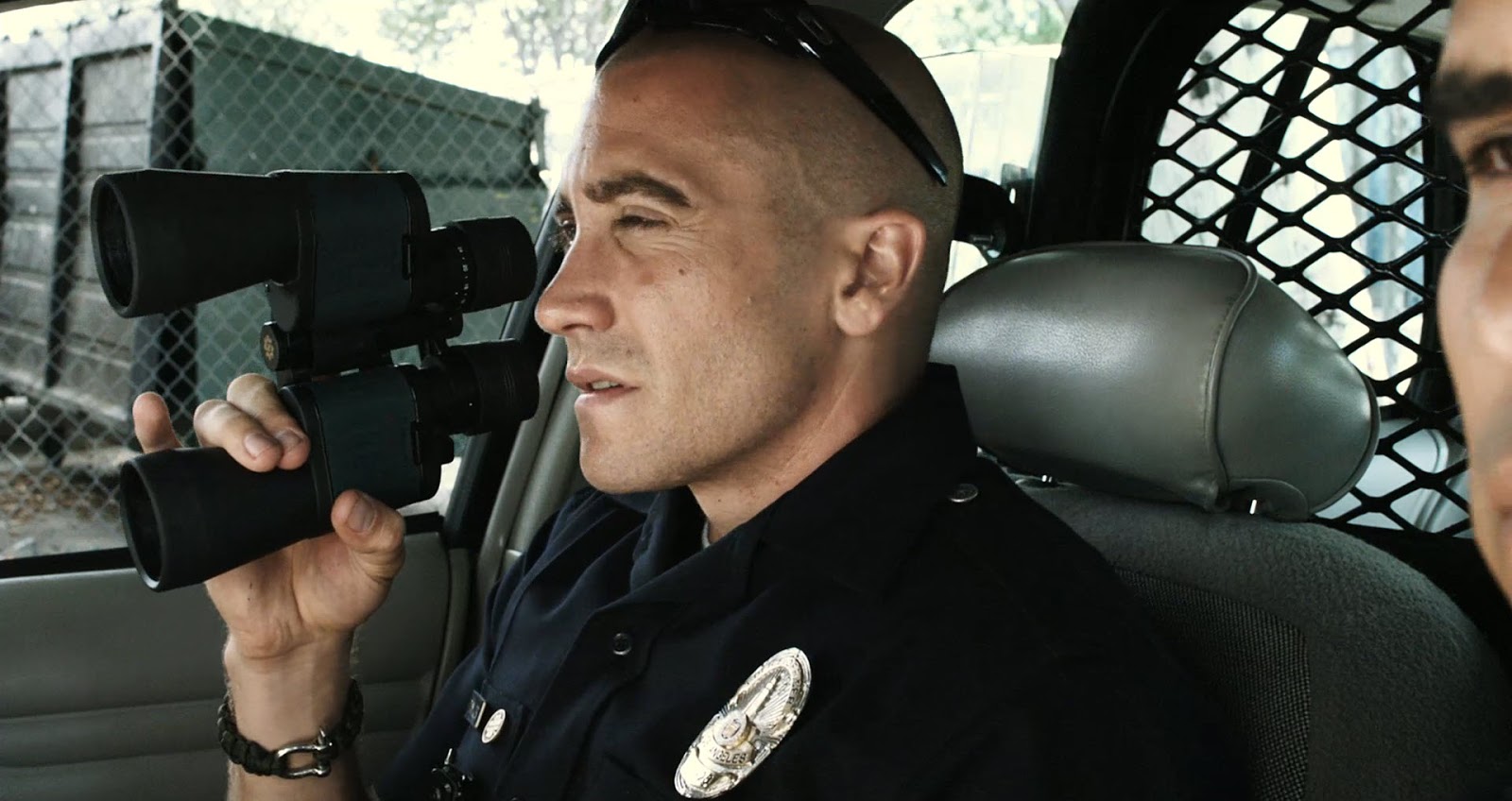
David Ayer recently released the critically panned Suicide Squad and, while the film deserved its criticism, it is important to remember that prior to this Ayer was crafting some truly brilliant work. It comes as no surprise that the man who wrote the screenplay for the hard-hitting Training Day would go on to have a career in directing defined by grit and profanity.
Ayer has built a career off of focusing on the authentic human element of any high-octane environment. With Fury he placed his audience in a cramped tank to better understand the men who go to war and witness horrific scenes.
With End of Watch the director returned to what he knows best: law enforcement. The film uses the found footage style to follow two LAPD cops (Jake Gyllenhaal and Michael Pena) who piss off the wrong drug dealers and find themselves in the middle of very dangerous witch-hunt. The movie serves as an adrenaline rush through the mean streets of crime ridden LA. It is an adulterated look at the dangers of this world and the real people who exist on both sides.
Due to the nature of the film and the cynical, and gritty personas of the characters involved, the film was destined to contain a large amount of profanity. Striving for authenticity Ayer did not seek to limit the amount of swearing in the film. The f-word alone is said an impressive 326 times. This means with a runtime of 109 minutes the word, and its variants, appears an average of 2.99 times per minute. Of Ayer’s other films, Harsh Times, also makes a significant contribution to the conversation with the f-word appearing 2.46 times per minute.
6. Sweet Sixteen

Directed by the ever-brilliant Ken loach, Sweet Sixteen tells the story of a young criminal, Liam (Martin Compston), who is about to turn sixteen, as he desperately tries to escape the criminal world. Set in Scotland, amongst the working class, it comes as no surprise that the film is densely populated with profanity.
Liam is a ned, a Scottish term that refers to a certain brand of hooligan, and therefore is prone to criminal activity, crude gestures, public delinquency and, of course, swearing in the most inventive and vulgar ways. The film itself is a classic of the kitchen-sink genre. It’s plot, driven by Liam’s desire to make a better life for himself, his mother and his sister, is a distressing journey into a dangerous world in which escape seems nigh on impossible. Loach is a champion of this genre and his experience and filmmaking sensibilities shine through in this ode to the working-class hero.
In terms of the statistics, the f-word, and its variants, appears a total of 313 times throughout the film. That means the word appears 2.95 times per minute. And if you are a particular fan of cuss words, there are many others that feature frequently.